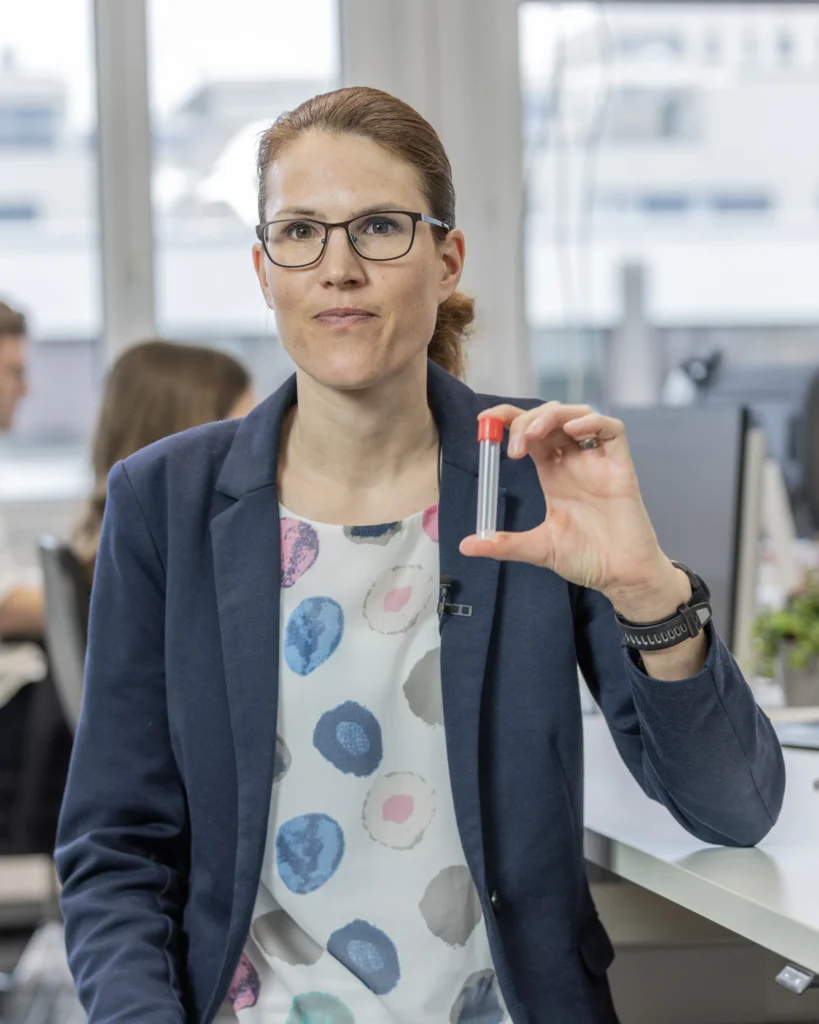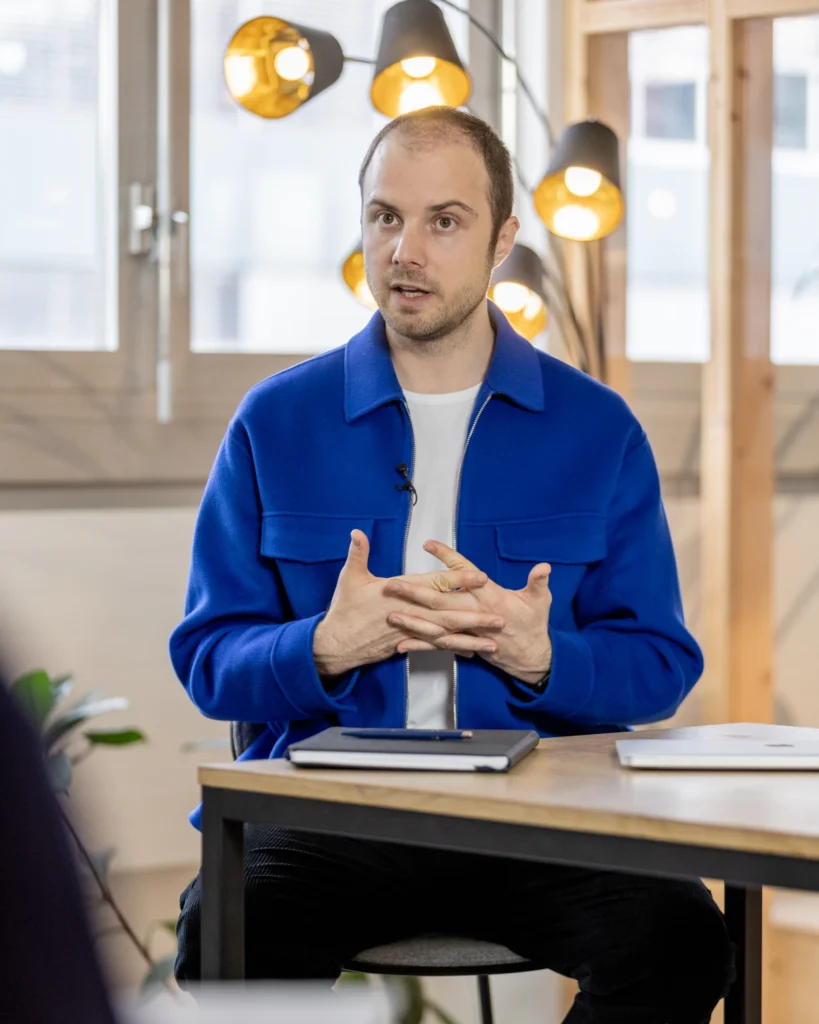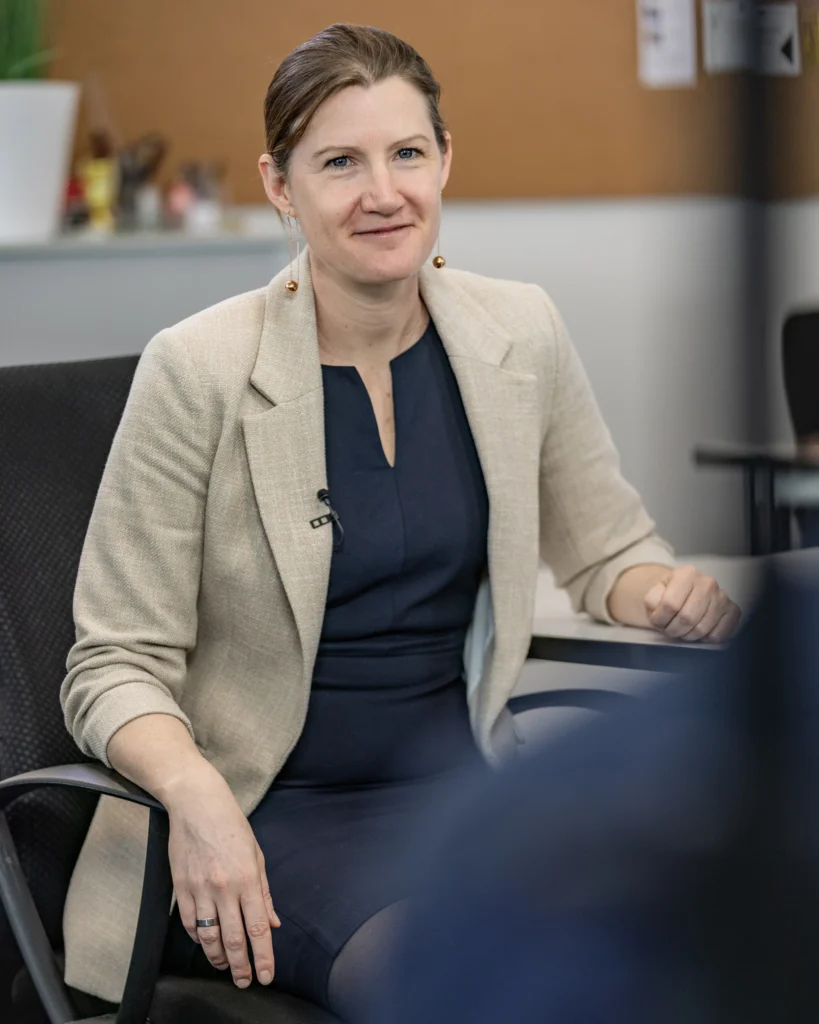Finalists 2024
ZKB Pionierpreis Technopark 2024
AVELO (Schlieren)
Breath Samples for Precise Diagnoses
For Avelo, very breath counts. With AveloCollect, the start-up has developed a user-friendly, non-invasive breath collector to improve the diagnosis of tuberculosis and lower respiratory tract infections – two major causes of pneumonia, the fourth most common cause of death worldwide. The company was founded in 2020 by HSG graduate Melanie Aregger (CEO) and Tobias Broger (CTO) and is based in Schlieren.
Avelo has developed a unique nanofiber technology for its breath collector that is comparable to modern blood tubes. Doctors use AveloCollect to painlessly collect breath samples from their patients and analyse them quickly and precisely using existing PCR tests. As a result, barriers such as sputum or lavage samples are overcome, and more accurate diagnoses are achieved for patients. In this way, healthcare costs can be saved, and unnecessary antibiotic prescriptions avoided.
The operational prototype has already been successfully evaluated in clinical proof-of-concept studies, both for tuberculosis in South Africa and for COVID-19 in Germany. Avelo has also entered partnerships with three leading PCR test providers.
Formal product development of Avelo’s collectors is expected to be completed in the second quarter of 2024, followed by extensive clinical validation studies. Production and marketing in Switzerland and Germany will begin this year.
“The jury is convinced that Avelo is about to challenge the status quo in the detection of respiratory diseases. With its’ robust and user-friendly device, Avelo outperforms existing technologies in respect to ease of use and costs. The expected impact of Avelo’s technology on human health – including in the Global South – played a key role in our decision-making process,” says Andreas Plückthun, Professor at the Institute of Biochemistry at the University of Zurich and long-standing member of the Pionierpreis jury.
DECENTRIQ (Zurich)
New standards in cybersecurity
Decentriq develops and operates a software platform in the software-as-a-service model that enables companies and organizations to make sensitive information available for collaborative analysis without allowing access to the data, while guaranteeing data protection-compliant use (“sharing without sharing”).
The most valuable data in a company is usually also the most sensitive, such as customer or patient information. In many cases, their value-creating analysis (for example in AI tools) requires multiple parties – often from outside the company – to have access to the data. This entails a wide variety of risks. In addition, this data is usually subject to legal and regulatory requirements.
With its cloud-based data cleanroom, Decentriq offers a secure environment for data in which it can be encrypted and made available to third-party companies for analysis and research purposes.
Processing takes place exclusively on the protected information so that the cooperating companies do not have access to the raw data at any time. The start-up uses confidential computing, a new, highly secure chip and cloud technology from industry giants such as Microsoft, Intel, and AMD.
Decentriq was founded in 2019 by Maximilian Groth (CEO) and Stefan Deml (CTO) and already has an impressive list of customers. For example, the start-up has been involved in a Swiss Armed Forces project to strengthen the critical infrastructures of the Swiss financial center.
The jury of the Pionierpreisjury is convinced that Decentriq will make confidential computing usable in a simple and secure way and will massively facilitate collaboration between different stakeholders with sensitive value-added data.
STIMIT (Biel/Zurich)
NEW WAYS OF BREATHING THROUGH DIAPHRAGMATIC STIMULATION
Stimit offers a non-invasive method of preserving the diaphragmatic muscles of ventilated patients. This enables patients to breathe independently quicker and more effortlessly after recovering from lung diseases. The Medtech start-up was founded by engineer Ronja Müller-Bruhn (CEO and CFO) and her husband Oliver Müller and employs a team of fourteen people at its sites in Biel and Zurich.
Studies show that when the diaphragm is inactive, as occurs during mechanical ventilation, the diaphragm muscles can lose half of their strength within three to five days. This leads to long ventilation times and makes active, supervised breathing and muscle training indispensable during convalescence. Over the last four years, Stimit has developed the Stimit Activator, a headset with specially configured coils that generates targeted electromagnetic fields and thus activates the diaphragm in a non-invasive way – comparable to a natural breath. The stimulation takes place from the outside of the patient’s neck via the phrenic nerve, also known as the diaphragmatic nerve. Feedback integrated into the Stimit Activator’s control unit ensures optimum synchronization of the stimulation with the patient’s ventilation pattern. In the first treatments with the Activator, the diaphragm is stimulated twice a day to prevent atrophy.
The first concepts for user-friendliness were developed in collaboration with renowned clinics in Switzerland and Germany. These early clinical data show a promising potential for effectiveness. Products of this type are not yet available on the market.


